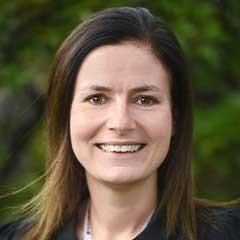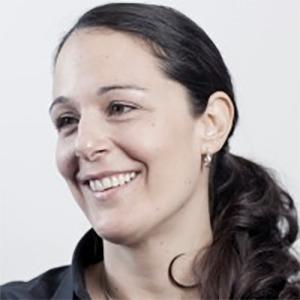Dr Graham Jackson explains that embedded first contact physiotherapy is a welcome addition to the primary care network's multidisciplinary team, and perfectly suits the needs of the patient population.

Dr Graham Jackson works at Whitehill Surgery in Aylesbury, which is part of BMW primary care network (PCN). All three surgeries that make up the PCN have access to FCP services, which have been subcontracted from a musculoskeletal (MSK) provider.
Approach
Two of the three GP surgeries cover populations of approximately 14,000 and the third covers a population of 9,000. The FCPs are employed by the MSK service provider (Practice Plus Group, formerly Care UK), which is subcontracted to provide the FCP service.
An FCP works two days a week in one surgery, another FCP works two days a week in the second, larger surgery, and patients from the third surgery can be referred to either of the FCPs on a cross-site basis.
Since Phase 1 of Covid 19, the team has offer offered only virtual appointments, but they have begun to offer face-to-face provision after an appropriate risk assessment and Covid screening. Some patients are booked in to see an FCP directly, through their trained care navigations (senior receptionists), and others are booked after an initial phone consultation with a GP. Appointments are usually booked in the same week, so the FCPs are mostly seeing patients with acute needs.
Like most FCP services, they provide assessments, diagnosis, some self-management advice and referrals to other services – it is not a case of the physiotherapist providing treatment.
The benefit of the FCP being subcontracted from the MSK provider is that any referrals can go directly to the secondary care service and do not have to be triaged again by the MSK service. GP referrals to the MSK provider would be triaged by a senior physio.
Set-up and implementation
In 2018-19, Practice Plus Group worked with Buckinghamshire Clinical Commissioning Group (CCG) on a six-month FCP pilot in two GP practices. Following positive feedback from patients and the practices involved, the outcomes were presented to all PCNs in Buckinghamshire.
In December 2019, PCNs across Buckinghamshire decided to move forward with this model, while ensuring that FCPs were part of a wider MSK service with established training, support and local policies. They also ensured that peer support was more readily available and that patient pathways would be more seamless.
Information about the FCP role and implementation was provided to the whole PCN team, via face-to-face and email communications, and the care navigator team was provided with basic training, documentation and flow diagrams for referrals to ensure that the correct patients were offered appointments with the FCP.
The clinical director and deputy clinical director of Practice Plus Group oversee the supervision and support of the FCPs. And the FCPs also work as advanced physiotherapists in the community MSK service, ensuring a joined-up approach.
It’s reassuring that Practice Plus Group is also part of a pilot being run by Health Education England to implement the FCP roadmap, which demonstrates that the FCPs meet the core skills and competencies of the roadmap.
The practice is now accustomed to having a multidisciplinary team, which is not just GP-led, and the reception team is trained to direct patients to the correct healthcare professional after their initial contact with the surgery.
The team has a high level of respect for each other’s professions, as they believe it’s the right thing for the patient population.
Informal catch-ups throughout the week ensure that all staff feel part of an inclusive team and that the FCP doesn’t feel like a visiting physiotherapist. They also communicate throughout the day electronically.
Whitehill surgery already had a model of remote working prior to the pandemic and had begun to develop and talk about expanding the team after losing three partners two years ago.
Benefits
For patients
- Prescribing can be avoided with a proper assessment by an FCP.
- Patients can see an MSK expert more quickly.
- They can receive early diagnosis and reassurance.
- It allows appropriate and timely access to imaging (via the MSK service) and onward referral.
For staff and the PCN
- Subcontracting the FCP service from the MSK provider means that the PCN doesn’t have the employment burden.
- The medical optimisation agenda lends itself to this service (as the right clinician is seen first).
- It offers another option for clinical assessment within the team.
- Mutual learning can take place between team members.
- There are improved relationships and understanding between primary care and MSK services.

Dan Tamplin, one of the FCPs working in the service, said:
'The FCP role at Whitehill Surgery is a fantastic new service, not only for patients with MSK conditions but also for my own professional development. It has provided an excellent opportunity to develop good relationships and collaborative working practices between Practice Plus and primary care; I really do feel part of the team.
'My working day is quite fast-paced and I deal with a huge variety of patient needs; I can never be entirely sure what to expect until the patient enters the room, which I find exciting. It is satisfying being able to pass on knowledge to patients on how to self-manage their issues right at the first point of contact with the health service, rather than them having to wait several weeks. Working closely with different health professionals is certainly a great way to support each other to achieve our joint objective of providing the best patient experience and care.'
Outcomes
Our MSK FCP is another piece of the jigsaw to our multidisciplinary team – in our PCN, we talk about clinical appointments, not doctor's appointments. I can’t pretend I can do the same level of assessment that an advanced MSK physiotherapist could do. It’s about providing what is needed for your population.
Feedback from our patients has been amazing (see below), and this has to do with both the service provided by the FCP and how we promote it in the practice. We are very explicit that they are seeing a senior physiotherapist for a one-off assessment.
Healthwatch report
Read a September 2019 follow-up report on the FCP pilot on the Healthwatch Bucks website.
Patient feedback
This data was collected during the pilot with Buckinghamshire CCG in two of the GP practices, and 93 questionnaires were received from patients.
Patient's comments included:
- 'The physio was very friendly and so helpful. Very pleased with the help given. Keep this practitioner at the surgery. Very good service!'
- 'Please keep it as a clinic here – it’s good because you can sort problems out early on.'
- 'Today’s service was excellent.'
- 'I do not think there could be any improvement in my experience today.'
Next steps
Originally, the GP surgery had an FCP for only one day each week, but the team quickly realised that this wasn’t enough. Changing to two days has been a massive improvement, ensuring enough access to the service. There’s currently no further need to expand.
Key learning points
- Before making a decision about FCP, look at the total number of people coming into your acute list for MSK problems.
- Also look at the prescribing of medicines to that cohort.
- Think about your populations needs.
- Set your expectations of the work programme.
- Understand what the job role is – don’t expect to provide physiotherapy treatments.
- When subcontracting, you should consider absence cover, mentoring and training, and request that these are built into the contract.

More information about this case study
If you would like more details about this case study, please contact Michelle Saunders from Practice Plus Group.




































